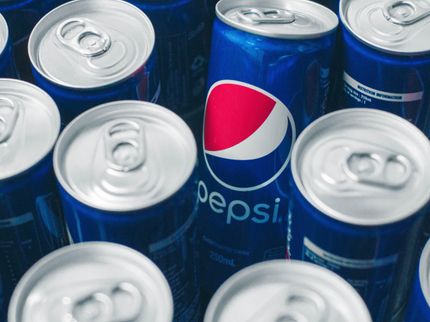Medically tailored meal programs could yield significant health care savings across 49 US states
Simulation predicts that prescriptions for foods tailored to support millions of Americans with diet-sensitive conditions would reduce related expenses
Advertisement
While Food is Medicine programs are successfully helping patients manage their health, many initiatives are small-scale pilots, providing treatment to several hundred or several thousand patients. Results of these studies have demonstrated that these nutrition-based food prescription programs improve a range of health outcomes for patients with diet-sensitive conditions, while also potentially saving in medical costs, suggesting wider implementation and investment would lead to long-term savings and a healthier population.

symbolic picture
computer generated picture
To quantify the potential impact of one such intervention, a team at the Food is Medicine Institute at the Gerald J. and Dorothy R. Friedman School of Nutrition Science and Policy at Tufts University developed a simulation model to predict how medically tailored meals—designed by registered dieticians to meet the nutritional needs of individuals with complex health conditions—would affect patients and health care systems across all 50 states.
Their analysis, published April 7 in the journal Health Affairs, estimated that nationwide implementation could save approximately $32.1 billion in health care costs in the first year alone and prevent more than 3.5 million hospitalizations annually related to complications from diabetes, heart disease, and cancer.
“The most striking finding is that medically tailored meals, assuming full uptake by eligible individuals, were cost saving in 49 of 50 states, highlighting their potential to reduce both financial and health burdens,” said first author Shuyue (Amy) Deng, a doctoral student at the Friedman School. “These results emphasize the potential for policymakers to integrate medically tailored meals into health care coverage at scale.”
The simulation was run 1,000 times to account for uncertainties. The state-by-state analysis showed a net health and cost benefit for medically tailored meal programs nationwide, with important variations based on each state’s health care costs, infrastructure, policies, hospitalization patterns, and rates of diet-sensitive conditions. Among all states, Connecticut showed the highest annual per-patient savings at $6,299, followed by Pennsylvania ($4,450) and Massachusetts ($4,331). Alabama was the only state where implementing medically tailored meals would be cost-neutral but still yield health benefits for residents.
The researchers estimated that more than 14 million Americans across the country would qualify for receiving medically tailored meals—from as high as 1,221,000 in California to 18,000 in Alaska—based on having both a diet-sensitive condition like diabetes, cardiovascular diseases, or cancer and limitations in day-to-day activities, such as preparing meals or going shopping. Among this population, the model calculated that the average annual health care expenditure is around $30,900 per person, with each person experiencing an average of 0.53 hospitalizations per year.
The simulation model also evaluated how many patients would need to receive medically tailored meals to prevent one hospitalization. Maryland required the fewest (2.3 patients), and Colorado required the most (6.9 patients). The reasons for state-to-state differences varied, impacted by factors ranging from the health of each state’s population to the infrastructure of their hospital payment systems. Nationally, these programs were estimated to avert over 3.5 million hospitalizations annually.
"Our findings suggest that medically tailored meals are not just good medicine—they're good economics," said senior author Dariush Mozaffarian, director of the Food is Medicine Institute at the Friedman School. "States are excellent incubators for health care innovation. Investing in medically tailored meals could transform care for vulnerable patients in every state while creating substantial health care value."
Of the people considered in the simulation model, nearly 90% were covered by Medicare and Medicaid services, and the rest by private insurers. As of January 2025, 16 states have approved or proposed Medicaid section 1115 waivers (special permissions to test new health innovations) to cover Food is Medicine treatments, which can include pilots for medically tailored meals. Further considerations will be needed to scale effectively, such as training providers, integrating screening and referral tools into the electronic health records, and ensuring taste and nutritional quality of the meals.
This study is one of six papers including Food is Medicine Institute experts appearing in a recent issue of Health Affairs with a theme of food, nutrition, and health. The other five papers are:
- Food is Medicine in America: A national poll of public perceptions of care, practices, and policies
- Complex Interrelationships between Income, Food Security, Nutrition Security, and Health
- Advancing FDA's Human Food Program Through Additional Authorities and User Fees
- Medicaid Flexible Services to Address Nutritional Needs: Impacts on Healthcare Utilization and Costs in Massachusetts
- Use of Medicaid Managed Care In Lieu of Services to Address Poor Nutrition in the U.S.
Research reported in this article was supported by the National Institutes of Health under award numbers R01HL115189, R01DK134452, and R01MD019094. Complete information on authors, methodology and conflicts of interest is available in the published paper. The content is solely the responsibility of the authors and does not necessarily represent the official views of the National Institutes of Health.


























































